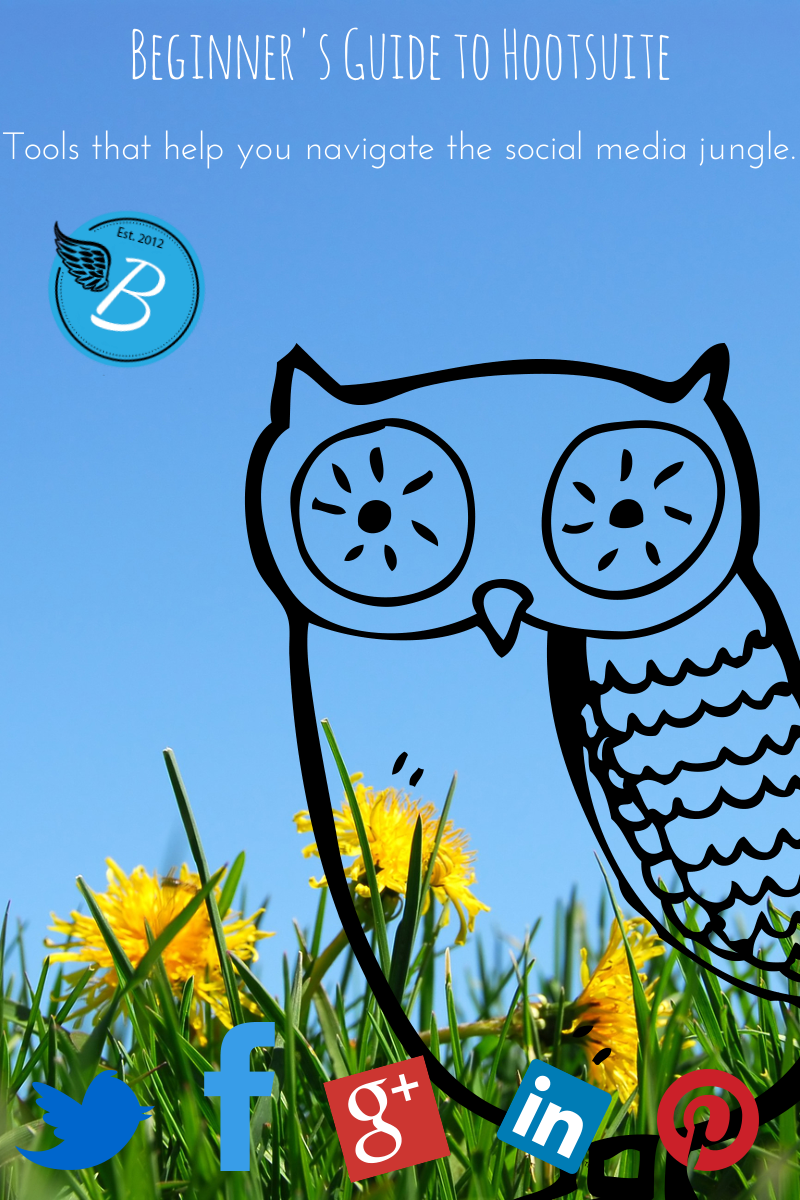 Social media can be overwhelming. Scratch that– it is overwhelming.
Social media can be overwhelming. Scratch that– it is overwhelming.
As bloggers, it seems mind numbing that after all that work to write a post, you then have to be your own PR and market it on every platform known to man.
Hootsuite aims to make social media just a bit easier. There are a lot of things to know about Hootsuite — and the software itself has some good tutorials, but I’m here to break it down for the beginner. If you’d like to get a handle on social media and not spend hours and hours checking your profiles, Hootsuite is worth the investment.
Getting an account
- Go to Hootsuite
- Sign up by entering an email address, a name and a password
That wasn’t too hard right?
Adding your social profiles
- For most of us, it’ll be sufficient to add your Twitter handle and your Facebook page (you can also add your personal FB profile but most bloggers have a page that’s separate).
- You can link up your social profiles immediately, or you can just do one and add them later. If you’ve just signed up, click on the Twitter profile button.
- It’ll ask you for a username and password and then it’s linked! If you want, you can do the same for Facebook by clicking on the Facebook button. Once you’ve done that, it’s time to go to your dashboard.
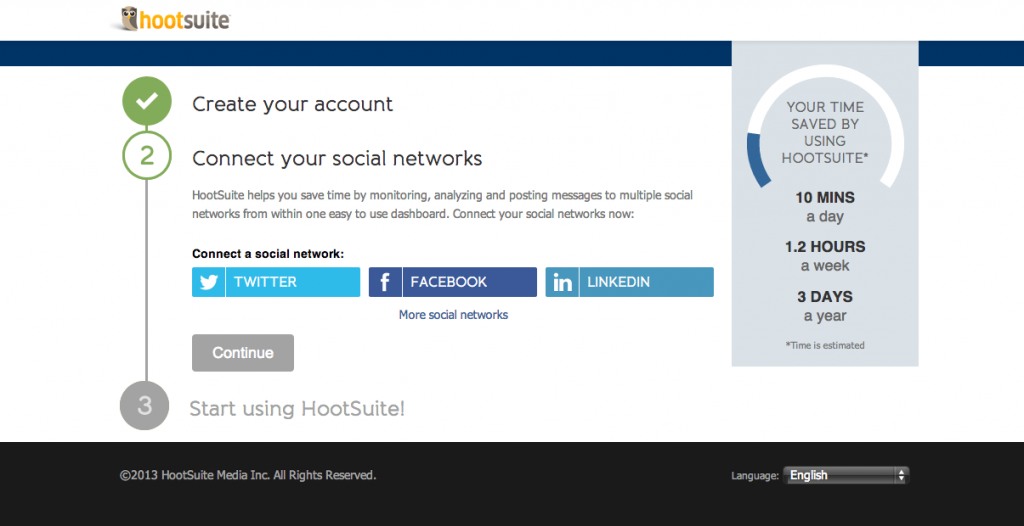
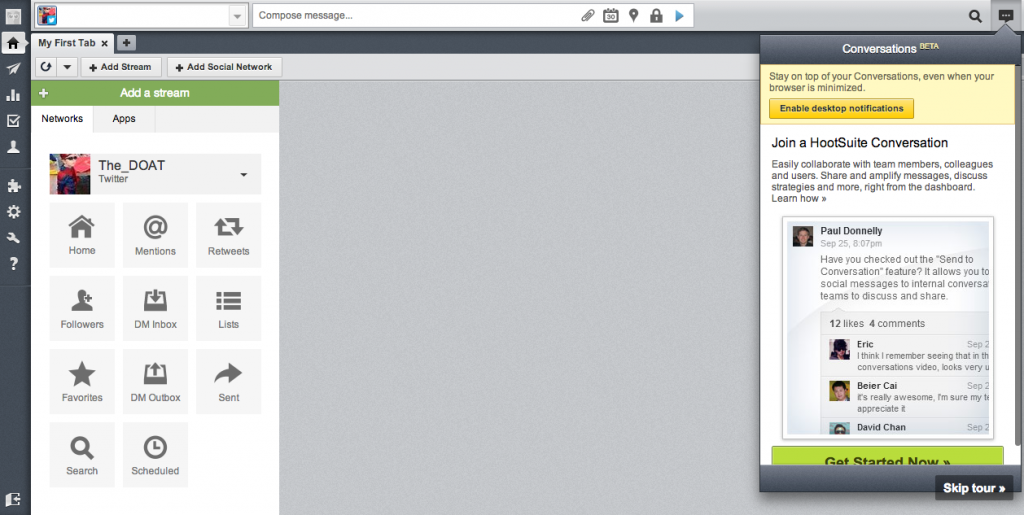
What are streams?
Once your profiles are linked, it’s time to add streams. Think of streams like different trails of conversation. With Twitter for example, there are several things you probably look at — your direct messages, your home twitter feed, and your @mentions. With Facebook, there are wall updates, event updates, and private messages. Hootsuite wants to know what streams you care about most.
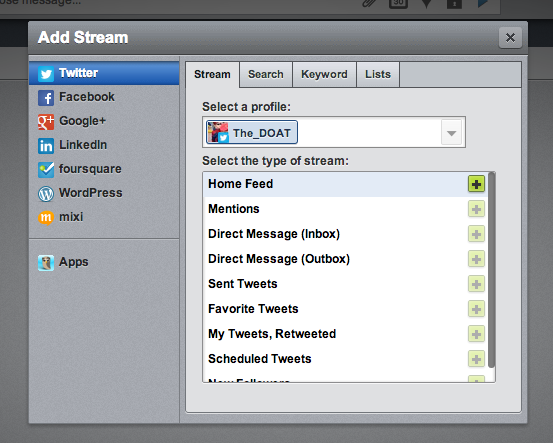
Let’s set up Twitter streams first.
- At the top of the dashboard, you’ll see a tab. Hover over the name and click on it and write “Twitter”. This will be your Twitter area.
- Click on the little + button that says Add Stream.
- A box will pop up with your profiles on the list. Choose the Twitter button. You’ll see that you can choose from a list of common streams (like I mentioned before). I think the best ones to choose are @mentions, your direct inbox, scheduled tweets (more on that later). You can choose as many as you want (but remember that you only have so much room on your screen. If you add more than can fit, it’ll just put a scrollbar on the bottom of your screen).
- Once you’re done with that, you see the tabs at the top of the box that say stream, search, keyword, and list? These are ways you can add particular streams that are specific to you.
- Choose the list tab. Then specify what profile you want (which is your twitter handle). You’ll see a bunch of your lists come up. This way you can watch certain tweeters that you’ve categorized into a list. This is especially helpful if you have a ton of people you are following.
- Now click on the keyword tab. I’m a blogger who writes about blogging. It’s important to me to keep track of the conversation about blogging right? You can add any keyword you wish and it will pull up a Twitter feed for that word. This works great with hashtags.
- Finally, click on the search tab. Here you can put in the URL of your blog. This way, if someone tweets out your post and forgets to mention you, you can still follow how many people are sending out links to your site. Cool huh?
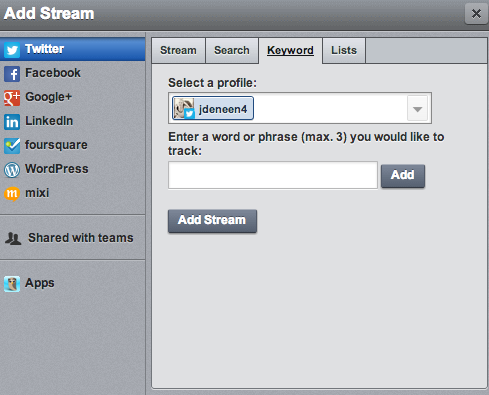
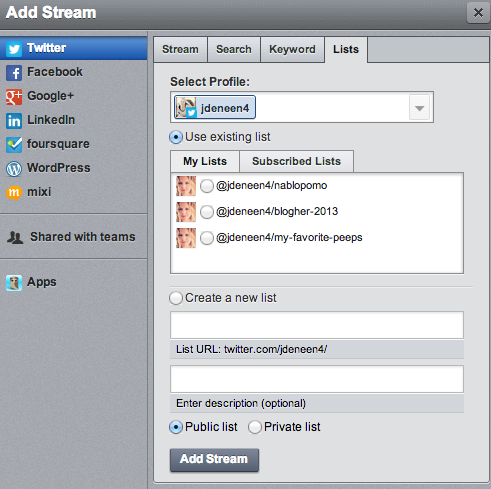
Setting up Facebook streams
- Facebook is a little simpler. If you linked your Facebook profile at the beginning of sign up, you don’t have to add it again. Otherwise, click Add Social Network and follow the prompts.
- One important note! If you have a Facebook page you want to hook up, you first have to go through your FB profile. When it asks you if Hootsuite has permission to post on your behalf, just say okay. Eventually it‘ll pull up a list of groups/pages and your profile. You choose which ones you want to link.
- Once that’s done, hit the + Add stream. This time when the box comes up, choose FB on the left. Then hit the dropdown and choose your page or your profile. Then add the streams you are interested in!
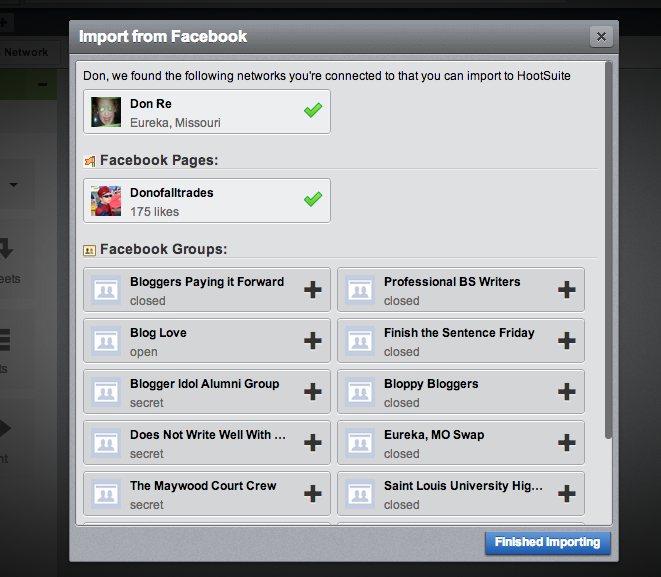
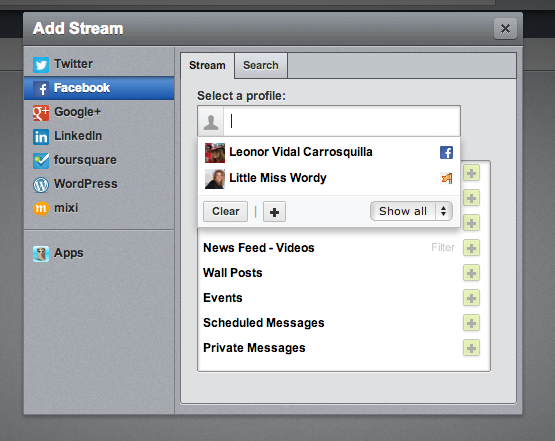
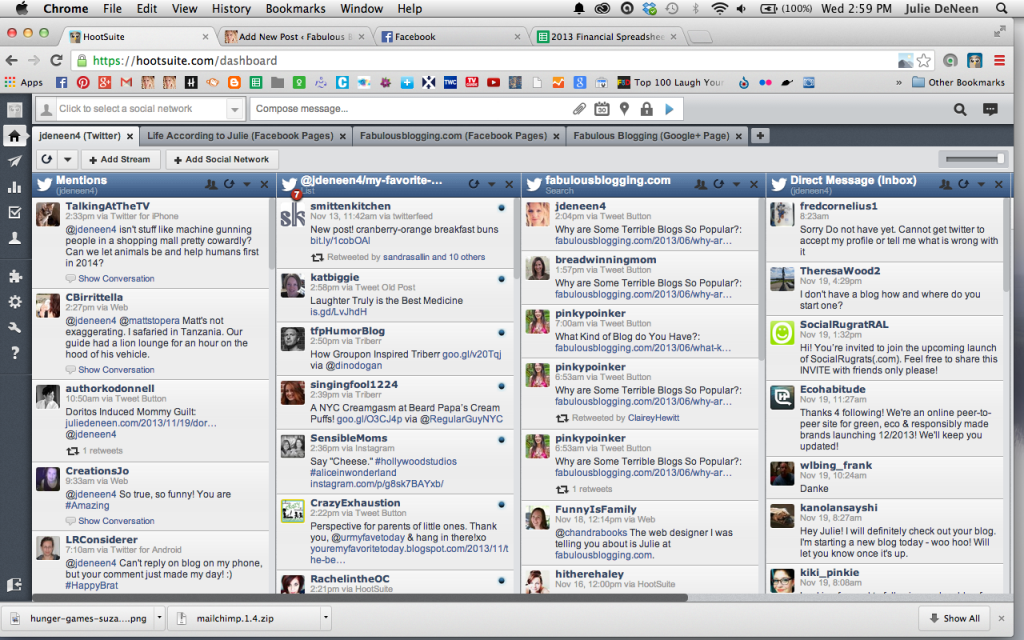
Sending out status updates and tweets
- At the top of the dashboard, you’ll see a little box that says, Click to select social network. Let’s tweet first. Choose your twitter handle.
- In the box to the right, compose your tweet. If you have a link, you can put it in the link box and hit “shrink” which will make it compact.
- Underneath the box, you’ll see a few buttons. One is to add an image or file, another is to schedule. This is a super convenient feature because you can schedule your tweets for the whole day early in the morning. Pick a date and time.
- Then hit schedule. If you selected to see your schedule stream, it’ll appear on your screen.
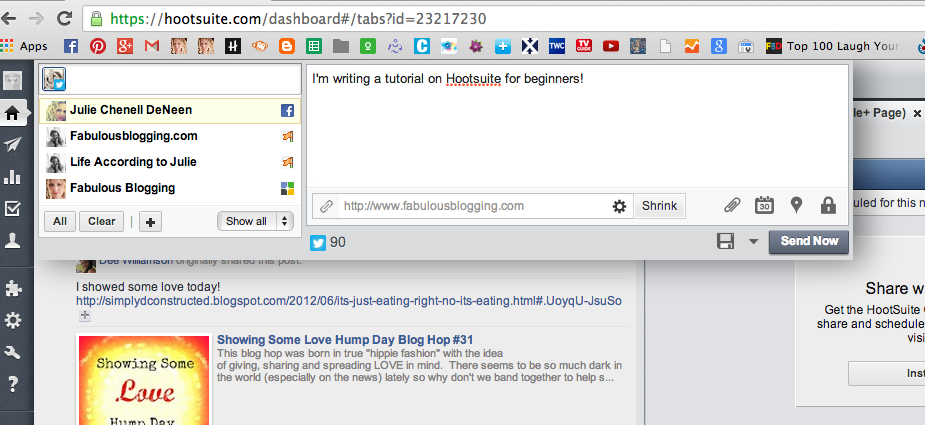
Sending simultaneous status updates
- When you pick a social network, you can choose several. This way, it’ll all go out at the same time and save you the trouble of repeating yourself.
- If you see something on a stream you want to respond to, the little icons next to the tweet or update will allow you to respond right from the tab.
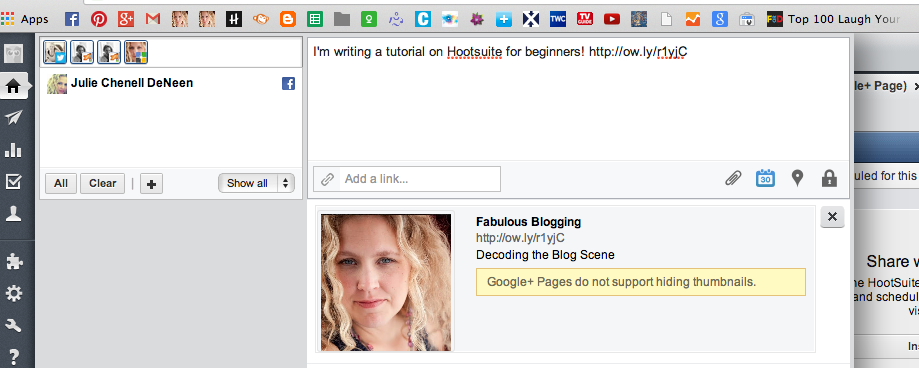
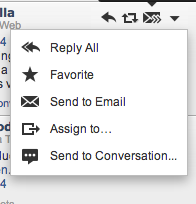
Benefits of Hootsuite
- You can see all your profiles in one place.
- You can schedule updates and links way into the future without having to jump on and off social media all day long.
- With a pro package, you can analyze which tweets and updates get the most clicks.
- With a platform like Twitter (that moves so fast) you can customize your streams so you don’t miss the things you want to see.
- You can shorten links to save on characters!
- If you add a Hootsuite extension, you can follow all your favorite blogs! Anytime you click on the RSS button, a hootsuite box will open up and ask if you want to add that blog to a tab. Click save and you’ll be able to access them all in one place!
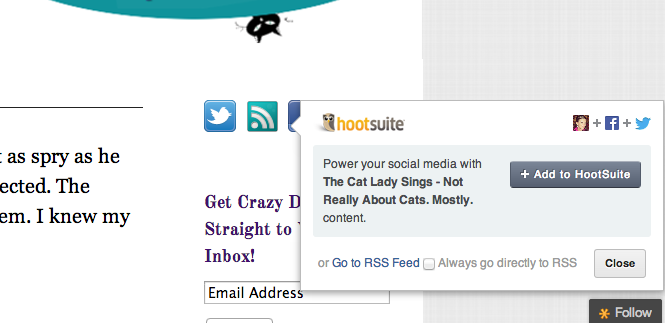
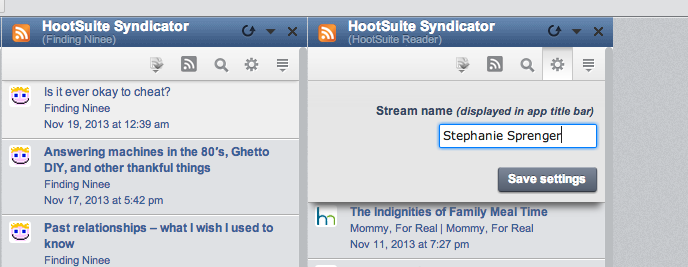
Now that you’ve mastered the basics, head on over to the SocialMediaHat where Mike Alton has a ton of Hootsuite blog posts that you can browse!
Have you checked me out on YouTube yet? You should!
